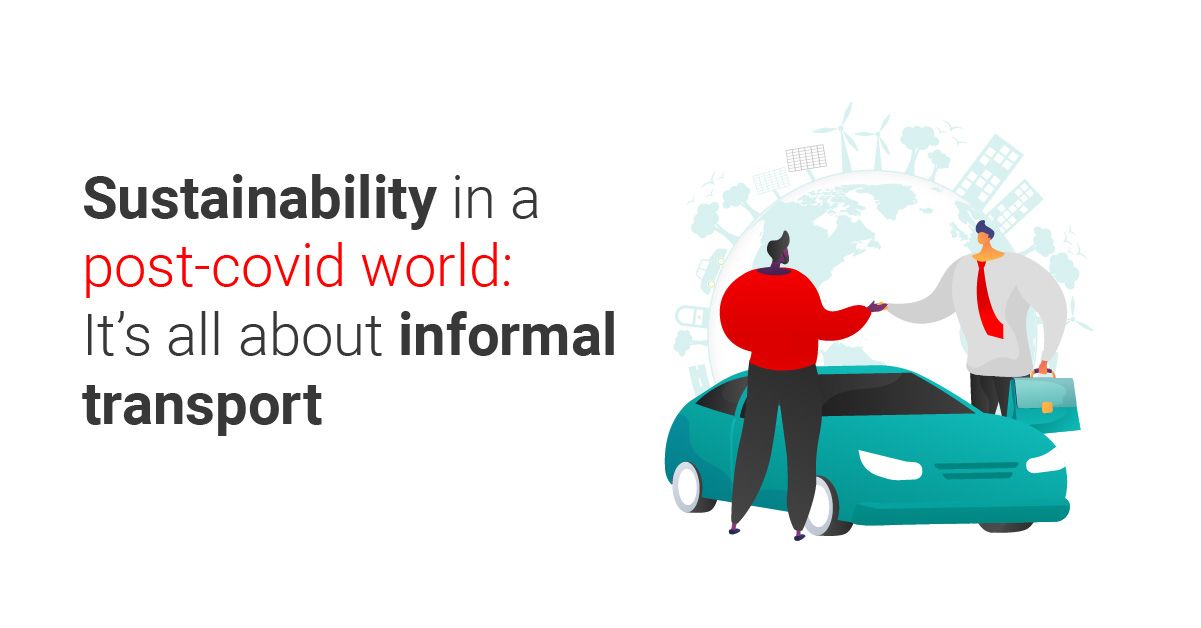
Sustainability in a post-covid world: It’s all about informal transport.
In recent months we’ve heard a lot about how we can restore public transport after the pandemic subsides, after all with remote-work becoming the norm and people’s fears of catching the virus in crowded areas, public transport has most definitely suffered. There is however, another form of sustainable transport which we should be talking about: informal transport.
What is informal transport and how is it sustainable?
Informal transport includes any form of unofficial or unregulated transport. This can be anything from mini buses, to car shares and mototaxis. Informal transport creates new jobs, economic growth, and due to numerous people sharing one vehicle, it’s also very sustainable.
These unregulated forms of transport have been utilized largely in Latin America for years, to help them access different parts of their city for work or healthcare, which traditional forms of transport often overlook. It therefore creates economic growth for not only those who drive these vehicles, but those who utilize them to access better opportunities as well.
Sustainable transport that minimizes private car use
In many places around the world, it’s almost impossible to access work or healthcare opportunities without a car. Take for example Beijing-- if you live on the outskirts of the urban area, you are basically forced to own a car to travel to and from work due to the limited availability of public transit.
The increased costs private car owners experience are not only economic, but also in terms of time and energy spent. Private car usage aso makes residents even more disconnected from others, as they both live and travel in more secluded ways. Informal transport minimizes private car use, by allowing people living in the outskirts to travel with others.
A sustainable future involves informal transport
Informal transport fills the gap where public transport ends and car ownership begins. It allows for transport to be truly sustainable, equal, and inclusive for all, irrespective of where someone lives. When we think about the future of sustainable transit, we should thus place greater importance on informal transport.
Read the full article here.
Take a look at more top articles, trends and experts by signing up to our newsletter—By getting to choose which topics interest you the most, you get the latest news delivered with ease: https://essentials.news/sustainability/my-essentials